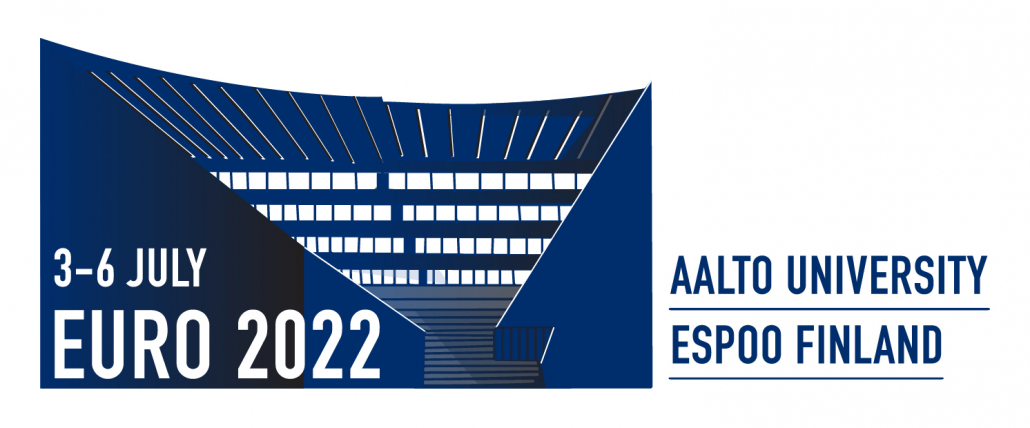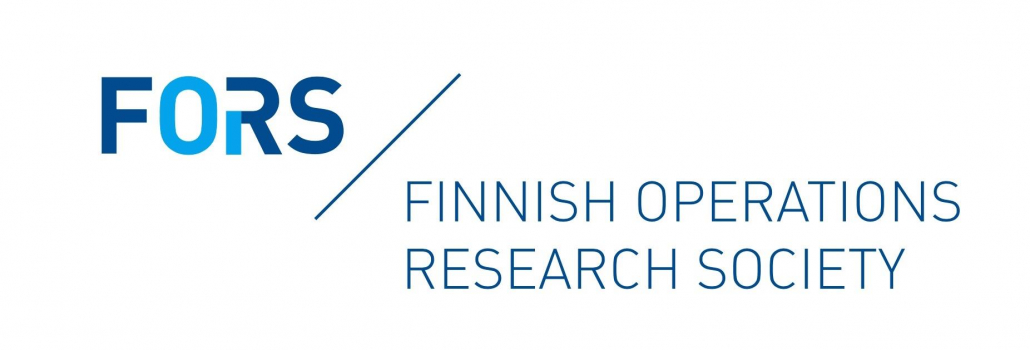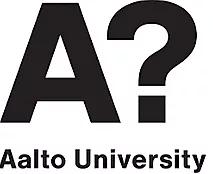Making an impact: what’s on for practitioners at EURO2022
Planned sessions in ‘Making an Impact’ stream (all sessions last 90 minutes unless otherwise specified)
Speed-networking Meet your peers in a friendly, informal way
Fast and furious: lightning talks Concentrated conference: short and snappy presentations
Collecting information from stakeholders: How to get what we need to design/calibrate our models
Rapid development of new models: an introduction to SPINE: Save time with SPINE
Show don’t tell; prove don’t claim: two tutorials on practical modelling
Making the OR/analytics sales pitch What works in getting customers – interactive discussion
What is ‘Excellent’ practical OR? A round-table on what constitutes excellence
Ethics in everyday OR practice An opportunity to consider how to do the right thing, more often
Recipes for engaging people in the post-Covid reality Remote comms and real engagement
OR in action: Some practical applications of OR: challenges, achievements and learning.
Excursion To the HQ of UPM, forest industry leaders.
Speed-networking Meet your peers in a friendly, informal way, through discussions in groups of 2-3 persons with pairings changing after a fixed time span of a few minutes.
OR is a team business, and knowing people you can turn to for ideas, feedback and support makes all the difference. But it is not always easy building your network, especially if you are shy or feel that you are an outsider. This welcoming session is a way of overcoming the barriers to networking, and enjoying yourself while you do it.
You may find it easier if you come with an idea of how you can introduce yourself to others in just two minutes. But don’t worry if you don’t have time to prepare – you’ll soon pick it up. Of particular interest to other participants may be any experiences you are willing to share regarding
successes, failures, or surprising outcomes of OR projects, best practices of communication with users/stakeholders, and learnings from interaction or collaboration with researchers from outside of your organisation.
The session will start with an introduction from Ruth Kaufman, chair of the EURO Practitioners’ Forum, who will present the activities of this forum, in particular with respect to networking opportunities, and give an overview on the Forum’s upcoming events and activities.
If you have business cards, do bring them along; if not, we’ll have plenty that you can use if you choose.
Fast and furious: lightning talks At a conference like EURO, it is impossible to catch up with everything; and all too easy to stick to a single stream within your usual professional specialism. This session showcases some of the breadth of OR in action, with a set of 5-minute presentations handpicked to inspire, interest and extend your knowledge.
Some of the presentations will be designed for this session only, others will be abbreviated versions of full talks appearing elsewhere in the conference. We aim to hold this session early on in the conference to give the audience the best chance of catching up with the speaker later on, and maybe going to see the full talk and other items in the stream.
The talks cover the full range of OR methodology across a great variety of practical application areas. Speakers include academics across the range from eminent to PhD, as well as practitioners from a variety of industries.
Details of talks and speakers can be here and the final programme will be available shortly before the event starts.
How to collect information from stakeholders to construct effective optimization models – a panel discussion Optimization is a mature technology which has taken leaps forward in the 21st century. Since optimization models aren’t one-size-fits-all, operations research practitioners are central in rolling out the benefits to industry. In this panel discussion we dive deeper into the part between sales and technical implementation, i.e. all the preliminary work where we translate client expectations and expert knowledge into mathematics and, further down the line, programming code. In practice, the problems are owned by clients, so collecting information is crucial to avoid irrelevant solutions.
What is the best way to construct the information gathering process? How do you bridge the gap between commercial broad-level perspective and the necessary technical details? What are best practices and what should be avoided? Join in on the discussion to hear more! Maybe you have a story to share as well?
Rapid development of new models: an introduction to SPINE When building new models, a lot of time can be spent on developing user interfaces and on the management of data. EU project Spine has developed a set of open-source tools that provides the required interfaces so that the user can focus on building the actual model. This workshop will demonstrate how to use Spine tools for rapid development of new models, with an example from the energy systems.
The session will start with Spine Toolbox, which is a software to manage data, scenarios and workflows for modelling and simulation. After that, SpineInterface.jl is used to access data directly from a Spine Toolbox database in order to build the example model in the Julia JuMP environment. For more information see <http://www.spine-model.org/index.htm>.
Show don’t tell; prove don’t claim: two tutorials on practical modelling
Show don’t tell: In the early stage of the project, concise communications with your users is crucial. As Operation Research specialists, we need to understand and challenge what our users request. This includes presenting potential solutions and approaches beyond their requests, circumventing limitations of current products. In this session, we show how to build a simple interactive prototype. It visualises complicated concepts to gather valuable feedback early on.
Prove, don’t claim: Harden your OR models by hypothesis testing: Convincing yourself that your OR model is theoretically correct and implemented flawlessly is no trivial task. In the worst case, it might break in production and cause high losses. Manually curated test cases are cumbersome, exhaustive and hard to maintain. In this session we present how to leverage property-based testing with the python framework Hypothesis. By defining data generators and formulating hypotheses your understanding of the model deepens and bugs hiding in overlooked corners are spotted.
Making the OR/analytics sales pitch No matter how good your OR solution is, it won’t get anywhere unless it has customers who have bought in to its potential and are happy to work with you on it. The purpose of this session is to share challenges, experiences of what works and what doesn’t, and ideas for new approaches, on topics related to selling OR & Analytics based consulting, projects, solutions etc. Please come if the overall theme interests you! It doesn’t hurt if you have some sales related topic in mind, which you would like to discuss with others. We will organize into sufficient number of small groups, which will evolve over the course of the session, using the Open Space method (see for example https://www.mind.org.uk/media-a/4924/open-space-method.pdf ) so also come if you would like to learn more about this interactive and participative approach.
What is ‘Excellent’ practical OR? OR people are generally strivers, never satisfied with ‘good enough’ and always looking for ‘excellent’, not just with our optimisation models but with our performance – our service to the customer and the community. When judging if an OR/data science/analytics project is ‘excellent’, what are the factors we consider? Is it the quality of the analysis, the complexity of the problem and the fitness of the solution, the relationship with the customer, the inspiration and learning that it gives to others in the profession or in the organisation, the size of the impact on the bottom line? Are any more important than any others?
Are there some “secret ingredients” to be added? Can we systematise the measurement of excellence? Or is it just something “in the air”?
This round-table discussion will bring together a number of senior OR figures who aim to provide excellent practical applications of OR/analytics/data science and to enable their teams to do the same, to share their views and encourage audience members to do the same. Panellists include Matti Vuorinen, Director of Advanced Analytics at forestry giant UPM; Matteo Pozzi, Partner and General Manager at optimisation consultancy Optit; Christian Timpe from the chemicals conglomerate and consultancy BASF; and Alessio Trivella of the University of Twente, one of the finalists from the 2021 EURO Excellence in Practice Award. The panel will be chaired by Tuomas Lahtinen, Chief Analytics and AI Officer at Loihde, and Ruth Kaufman, whose past roles include President of the UK OR Society, Chair of the UK Government’s OR Service, and Chair of the UK’s Heads of OR and Analytics Forum.
Our moral compass: integrating ethics into everyday OR practice “Practising ethically” means knowing what is the right thing to do, and doing it. This is easy to say, and much of the time it is easy to apply. But in the hurly-burly of every-day professional life, we are continually making compromises between ‘the best’ and ‘the feasible’. Sooner or later we come up against grey areas where we may disagree with colleagues about what is right, or where our personal ethical values conflict with each other, or where we realise too late that we should have made a different choice. The purpose of this session is to enable participants to reflect on ethical challenges in their own professional life; to learn from the ethical challenges experienced by others and how others have dealt with them; and to think about whether and how a code of conduct and/or other support/training mechanisms might be useful to them and their teams.
The session will start with an introduction considering practical situations where ethical challenges occur, previous work on ethics in OR, a review of the codes of ethics that different organisations have introduced, and discussion of how ethics codes might benefit OR professionals. We will then break into small groups to discuss actual experiences of ethical dilemmas, before returning to plenary to review. Note: this session will not explore the ethics of choosing particular application areas of OR, but focus on ethical practice whatever the application area (within the law).
Share our new identities after the lockdown: recipes for engaging people in the post-Covid reality
What if Covid19 constraint had finally overpowered our communication skills, after all? The covid situation forced us to communicate extensively using teleconferencing systems, and many new opportunities emerged: being able to meet and collaborate with people regardless of their location, being flexible and able to work in non-professional settings… and we have also learned to share more facets of ourselves.
What seemed like a big disadvantage may have brought us to new levels of effective communication and global engagement.
In this inspirational, collaborative MAI session, we will collectively discover and exchange communication recipes, acquired in those difficult times. Be prepared to engage and even surprise other people using conventional and unconventional means!
OR in action: This session will include three talks describing practical applications of OR: challenges and achievements, followed by a discussion session reviewing issues around OR in practice that emerge from these and from the rest of the stream. The final session will invite audience contributions.
Excursion For the first time for some years, we are delighted to be organising an excursion to visit a local centre of excellence in the practice of OR. We will be hosted by UPM (upm.com), one of Finland’s largest companies.
This trip to UPM’s headquarters in Helsinki will take place after the final plenary of the day on Tuesday, and finish in time for the conference dinner, if you are attending that. Spaces are limited to a maximum of 20, so places must be booked in advance, and may need to be rationed. If you wish to attend, please email makinganimpact2022@gmail.com.
Some highlights from the rest of the conference:
‘OR for the common good’: hear from finalists for this award to honour outstanding accomplishments of OR for solving social-oriented problems.
Relevant, significant plenaries from Marja-Liisa Siikonen, Christina Pagel and Andrea Lodi.
Keynotes on topics including stakeholder engagement, partnership working on humanitarian problems, and incorporating social and environmental factors into models.
Parallel sessions on developments and implementations from all fields of OR methodology and application.



